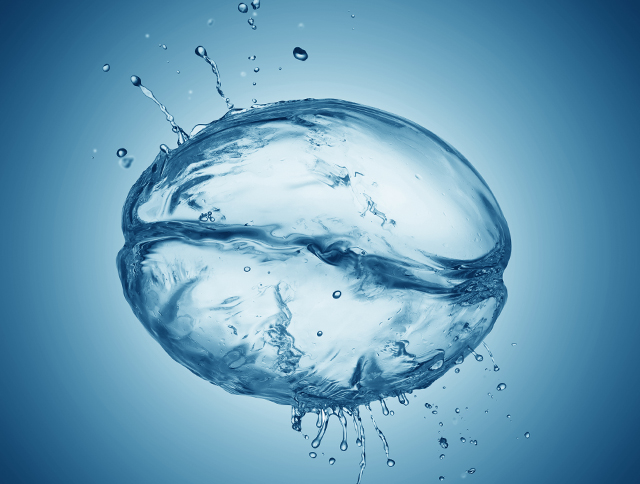
5-7 Workdays Article No. 1913
Aroma(s) : Nutty, Floral
Article No. 1913

5-7 Workdays Article No. 10284
Aroma(s) : Fruity
Article No. 10284

5-7 Workdays Article No. 11025
Aroma(s) : Chocolaty, Nutty, Fruity
Article No. 11025

5-7 Workdays Article No. 11032
Aroma(s) : Chocolaty, Floral
Article No. 11032

5-7 Workdays Article No. 11038
Aroma(s) : Chocolaty
Article No. 11038

5-7 Workdays Article No. 1586
Aroma(s) : Floral, Fruity
Article No. 1586

5-7 Workdays Article No. 1475
Aroma(s) : Chocolaty, Nutty, Fruity
Article No. 1475

5-7 Workdays Article No. 11056
Aroma(s) : Caramel, Honey, Nutty, Fruity
Article No. 11056

Unavailable Article No. 1340
Article No. 1340

Unavailable Article No. 10826
Aroma(s) : Fruity
Article No. 10826

Unavailable Article No. 10178
Aroma(s) : Nutty, Floral
Article No. 10178

Unavailable Article No. 10744
Aroma(s) : Chocolaty
Article No. 10744

Unavailable Article No. 10149
Aroma(s) : Chocolaty
Article No. 10149

Unavailable Article No. 10069
Aroma(s) : Chocolaty, Nutty
Article No. 10069

Unavailable Article No. 10827
Article No. 10827

Unavailable Article No. 1039
Aroma(s) : Chocolaty, Floral
Article No. 1039

Unavailable Article No. 1091
Aroma(s) : Nutty, Malty
Article No. 1091

Unavailable Article No. 1115a
Aroma(s) : Nutty
Article No. 1115a

Unavailable Article No. 1259
Aroma(s) : Nutty, Floral
Article No. 1259

Unavailable Article No. 1403
Aroma(s) : Floral
Article No. 1403

Unavailable Article No. 1863
Aroma(s) : Chocolaty, Malty
Article No. 1863

Unavailable Article No. 1719
Aroma(s) : Malty, Floral
Article No. 1719

Unavailable Article No. 1963
Aroma(s) : Floral, Fruity
Article No. 1963

Unavailable Article No. 1966
Aroma(s) : Chocolaty, Malty
Article No. 1966

Unavailable Article No. 10230
Article No. 10230
The Ultimate Guide to Decaffeinated Coffee: Health Benefits, Brewing Tips, and Best Brands
Decaffeinated coffee, commonly known as "decaf," is a popular option for those who appreciate the flavour of coffee but wish to avoid the stimulating effects of caffeine. Whether you're aiming to reduce your caffeine consumption for health reasons or simply prefer a gentler cup in the evening, decaf coffee provides the ideal solution. However, there's much more to decaf than one might expect. This comprehensive guide explores the health benefits, dispels common myths, offers brewing tips, and highlights the best decaf coffee brands, ensuring you can savour every sip without compromise. If you’re curious about making the switch to decaf or enhancing your current experience, read on to discover everything you need to know.
What Is Decaffeinated Coffee?
Decaffeinated coffee is regular coffee that has undergone a process to remove most of its caffeine content. Typically, this process reduces caffeine by 97-99%, resulting in a beverage that maintains the rich flavour of coffee with only a small fraction of the stimulant. Various decaffeination methods are used, each impacting the final flavour profile in unique ways, which can be important depending on your taste preferences.
Methods of Decaffeination
- Solvent-Based Process: This method involves using chemical solvents such as methylene chloride or ethyl acetate to remove caffeine. The beans are steamed to open their pores before being soaked in the solvent to extract the caffeine. Afterwards, the beans are steamed again to remove any remaining solvent. This method is efficient but often debated due to the chemicals involved, though it’s worth noting that the levels of solvent residue are minimal and safe.
- Swiss Water Process: A chemical-free method that relies on water and osmosis to remove caffeine. The beans are soaked in hot water, which dissolves the caffeine, and the water is then passed through a carbon filter to eliminate caffeine molecules. This process is preferred by those who wish to avoid chemical solvents altogether.
- CO2 Process: This modern method utilises supercritical carbon dioxide to selectively extract caffeine from the coffee beans, preserving most of the coffee's flavour and aroma. It’s a highly effective method that is increasingly popular for producing premium decaf coffee.
- Natural Decaffeination (Indirect-Solvent Method): Often considered the best method for retaining flavour, the beans are soaked in hot water to dissolve the caffeine, which is then extracted using an organic solvent. The water, now containing the coffee's flavour compounds, is reintroduced to the beans to reabsorb these flavours without the caffeine. This method strikes a balance between effectiveness and flavour preservation.
Health Benefits of Decaffeinated Coffee
Decaf coffee offers several health benefits, making it an excellent choice for those looking to reduce their caffeine intake while still enjoying the rich flavours of coffee:
1. Lowered Risk of Heart Disease
Studies have demonstrated that drinking decaf coffee can reduce the risk of heart disease, largely due to its antioxidant content, which helps to decrease inflammation and improve cardiovascular health. Regular consumption of decaf can contribute to a healthier heart over time.
2. Reduced Risk of Type 2 Diabetes
Decaf coffee has been linked to a lower risk of developing type 2 diabetes. This is partially attributed to its antioxidants and the potential to enhance liver enzyme levels, which play a role in regulating blood sugar. Choosing decaf could be a simple way to support your metabolic health.
3. Less Acidic
Decaffeinated coffee is generally less acidic than regular coffee, making it a more suitable option for individuals with acid reflux or sensitive stomachs. This means you can enjoy your coffee without the discomfort of acidity-related issues.
4. Better Sleep and Reduced Anxiety
By choosing decaf, you can indulge in your favourite coffee without the risk of sleep disturbances or increased anxiety levels often associated with caffeine. This allows you to enjoy coffee later in the day without compromising your rest or mental well-being.
5. Rich in Nutrients
Decaf coffee contains many of the same beneficial nutrients as regular coffee, such as magnesium, potassium, and vitamin B3. These nutrients are essential for overall health, contributing to everything from energy production to heart health.
Common Myths About Decaffeinated Coffee
Despite its benefits, decaf coffee is often misunderstood. Let’s dispel some of the common myths:
Myth 1: Decaf Coffee is Completely Caffeine-Free
While decaf coffee has significantly less caffeine than regular coffee, it is not entirely caffeine-free. A typical cup of decaf contains about 2-5 mg of caffeine, compared to 95 mg in a regular cup. It's a small amount but worth considering if you're highly sensitive to caffeine.
Myth 2: Decaf Coffee is Unhealthy
Some believe that the chemicals used in decaffeination make decaf coffee unhealthy. However, modern decaffeination processes, especially the Swiss Water and CO2 methods, are safe and leave negligible chemical residues. Additionally, these methods have been rigorously tested to ensure consumer safety.
Myth 3: Decaf Coffee Doesn’t Taste Good
While it’s true that decaffeination can affect flavour, advancements in decaf processing have significantly improved the taste quality, making it nearly indistinguishable from regular coffee. With the right choice of beans and brewing method, decaf can be just as enjoyable as its caffeinated counterpart.
How to Brew the Perfect Cup of Decaffeinated Coffee
Brewing decaf coffee to perfection requires the same attention to detail as regular coffee. Here are some tips to ensure you get the best out of your decaf beans:
1. Use Fresh, High-Quality Beans
Start with fresh, high-quality decaf beans. Look for beans that have been decaffeinated using the Swiss Water or CO2 process for the best flavour. Freshness is key to achieving a vibrant, full-bodied brew.
2. Grind Just Before Brewing
Grind your beans just before brewing to ensure maximum freshness and flavour. A medium grind works well for most brewing methods, balancing flavour extraction and brewing time.
3. Use Filtered Water
The quality of your water greatly affects the taste of your coffee. Always use filtered water, free from impurities, to brew your decaf coffee. This ensures that the subtle flavours of the coffee beans are not overshadowed by unwanted tastes from tap water.
4. Optimal Brewing Temperature
Brew your coffee at the optimal temperature range of 195°F to 205°F (90°C to 96°C) to extract the best flavours from your decaf coffee beans. Consistent temperature control can make a significant difference in the final taste.
5. Experiment with Brewing Methods
Whether you prefer a French press, pour-over, or espresso machine, experiment with different brewing methods to find the one that best suits your taste. Each method can bring out different flavour notes, offering a unique experience.
Best Decaffeinated Coffee Brands
To help you enjoy the best decaf coffee, here are some top brands offering high-quality, flavourful decaf options:
- Lavazza DEK Espresso: Lavazza is a renowned name in the coffee world, and their DEK Espresso is a top choice for decaffeinated coffee lovers. This blend combines robust Brazilian beans with mild Asian varieties, creating a harmonious, aromatic coffee with a creamy texture. The decaffeination process preserves the full flavour, making it an excellent option for those who want to enjoy a rich espresso without the caffeine kick.
- Kimbo Decaffeinato: Kimbo’s Decaffeinato offers a rich and full-bodied espresso experience. This coffee is decaffeinated using the CO2 method, which avoids the use of chemicals and maintains the beans' natural flavours. It's perfect for those who appreciate a deep, intense coffee with minimal caffeine.
- Lucaffé Decaffeinato: Lucaffé is known for its premium coffee blends, and their Decaffeinato is no exception. This decaf espresso is well-regarded for its fine, chocolaty aroma and thick crema, offering a luxurious coffee experience. Lucaffé’s careful roasting process ensures that the decaf retains a strong flavour, making it a favourite among decaf enthusiasts.
- Illy Decaffeinated Espresso: Illy’s decaf coffee is another standout choice, known for its finely balanced flavour profile that includes nutty, fruity, and pleasantly woody notes. The smooth finish and elegant aftertaste make it a premium choice for decaf espresso lovers.
Top Expert-Recommended Decaf Coffee Brands for the Ultimate Coffee Experience
- Swiss Water Decaf: Known for its chemical-free decaffeination process, Swiss Water offers rich, flavourful decaf coffee that’s gentle on the stomach.
- Lavazza Dek: Lavazza’s Dek is an Italian favourite, offering a smooth and balanced decaf espresso with hints of caramel and nuts.
- Kicking Horse Decaf: Kicking Horse Coffee is renowned for its organic, fair-trade beans. Their decaf blend is rich, full-bodied, and perfect for any brewing method.
- Peet’s Decaf House Blend: Peet’s Coffee offers a robust decaf house blend that is dark, flavourful, and satisfying for those who prefer a bolder cup.
- Volcanica Coffee Decaf: Volcanica offers a wide range of decaf options, from single-origin to blends, all decaffeinated using the Swiss Water Process to ensure top-notch flavour.
FAQs About Decaffeinated Coffee
Is Decaf Coffee Safe During Pregnancy?
Yes, decaf coffee is generally safe during pregnancy. However, it’s important to monitor overall caffeine intake, as decaf still contains small amounts of caffeine. Consulting with your healthcare provider can help ensure you’re consuming it safely.
Does Decaf Coffee Raise Blood Pressure?
Decaf coffee does not raise blood pressure in the same way caffeinated coffee can, making it a safer option for those with hypertension. It allows coffee lovers to enjoy their daily brew without the concern of elevated blood pressure.
Can Decaf Coffee Cause Acid Reflux?
Decaf coffee is less likely to cause acid reflux than regular coffee, but those with severe reflux should still consume it in moderation. Experimenting with different brands and brewing methods may also help reduce any potential discomfort.
Conclusion
Decaffeinated coffee is an excellent way to enjoy the rich, complex flavours of coffee without the stimulating effects of caffeine. Whether you’re reducing your caffeine intake for health reasons or simply prefer a milder cup, decaf coffee can be just as satisfying and beneficial as its caffeinated counterpart. By choosing high-quality beans, using the right brewing techniques, and exploring top decaf brands, you can enjoy the perfect cup of decaf coffee every time. So, next time you brew a cup, you can relish in knowing you’re not missing out on any of the flavour or health benefits.


